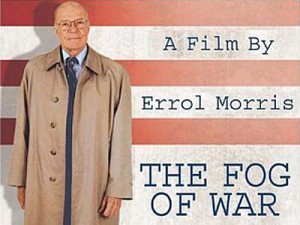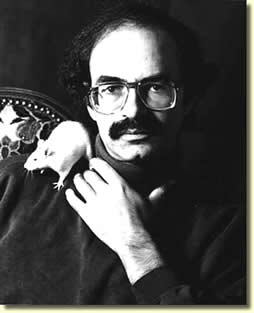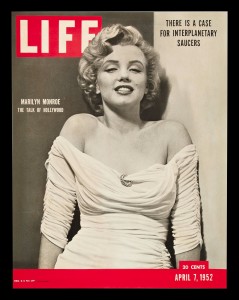 Empathy is becoming a science. That was the message of a recent article in The Observer newspaper by Cambridge psychologist Simon Baron-Cohen, based on his new book, Zero Degrees of Empathy: A New Theory of Human Cruelty. Our brains, he argues, contain an ’empathy circuit’. But if empathy is wired into us, does that leave any scope for expanding our empathic potential? Continue reading
Empathy is becoming a science. That was the message of a recent article in The Observer newspaper by Cambridge psychologist Simon Baron-Cohen, based on his new book, Zero Degrees of Empathy: A New Theory of Human Cruelty. Our brains, he argues, contain an ’empathy circuit’. But if empathy is wired into us, does that leave any scope for expanding our empathic potential? Continue reading
Author: Roman Krznaric
Helen Keller and the seeing hand
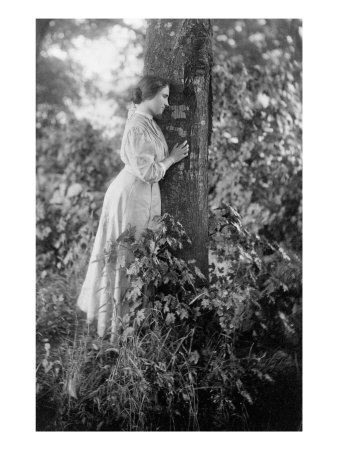 After being out of print for nearly a century, Helen Keller’s sensational collection of essays, The World I Live In, has recently reappeared in a variety of editions. Although her life is often remembered as an uplifting tale of personal triumph over extreme physical adversity, it is just as much an inspiration for how to expand our imaginations. By taking us on a journey into her dark and soundless world, her writings can help us rethink the nature of perception itself. Continue reading
After being out of print for nearly a century, Helen Keller’s sensational collection of essays, The World I Live In, has recently reappeared in a variety of editions. Although her life is often remembered as an uplifting tale of personal triumph over extreme physical adversity, it is just as much an inspiration for how to expand our imaginations. By taking us on a journey into her dark and soundless world, her writings can help us rethink the nature of perception itself. Continue reading
Solstice Short Story Special: The Ones Who Walk Away From Omelas
 To celebrate the Winter Solstice – or Christmas if that is your festival of choice – I invite you to read one of the most moving pieces of empathic fiction ever written. It is a short story by Ursula Le Guin, ‘The Ones Who Walk Away From Omelas’, first published in 1973. Le Guin says she based her psychomyth parable on an idea from the philosopher William James where he imagined a world in which millions of people could be kept permanently happy on the single condition ‘that a certain lost soul on the far-off edge of things should lead a life of lonely torment’. Here is the story in full. Continue reading
To celebrate the Winter Solstice – or Christmas if that is your festival of choice – I invite you to read one of the most moving pieces of empathic fiction ever written. It is a short story by Ursula Le Guin, ‘The Ones Who Walk Away From Omelas’, first published in 1973. Le Guin says she based her psychomyth parable on an idea from the philosopher William James where he imagined a world in which millions of people could be kept permanently happy on the single condition ‘that a certain lost soul on the far-off edge of things should lead a life of lonely torment’. Here is the story in full. Continue reading
Why every city needs an Empathy Museum
 Just as the world’s major cities now have Holocaust Museums, it is time they all established Empathy Museums too. Their purpose would be nothing less than generating a new global culture of empathy by creating adventure spaces where you can explore how to view life from the perspective of other people.
Just as the world’s major cities now have Holocaust Museums, it is time they all established Empathy Museums too. Their purpose would be nothing less than generating a new global culture of empathy by creating adventure spaces where you can explore how to view life from the perspective of other people.
A typical Empathy Museum would not house dusty exhibits inside glass cases. Instead, it would be an exciting and intriguing playground rivalling the finest galleries and tourist attractions that the city has to offer. On rainy Sunday afternoons you might wander through the Empathy Museum with a few friends or your mother-in-law. During the week it is likely to be filled with children on school excursions and inquisitive visitors from countries where the ideal of empathy remains embryonic. The Empathy Museum will ignite the imagination just like the first public museums in the seventeenth century, whose collections of curiosities revealed the wonders of nature and human civilization for the first time. Continue reading
Is kindness good for you?
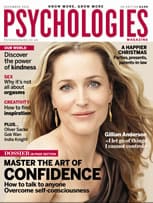 Just in case you missed it, yesterday – November 13 – was World Kindness Day. As part of the global festivities, I was interviewed by Rosie Ifould in the latest issue of Psychologies Magazine about the relationship between kindness and empathy. As I point out, kindness is not without its problems:
Just in case you missed it, yesterday – November 13 – was World Kindness Day. As part of the global festivities, I was interviewed by Rosie Ifould in the latest issue of Psychologies Magazine about the relationship between kindness and empathy. As I point out, kindness is not without its problems:
‘It can sometimes be a little too easy to describe actions as “kind”. If a wealthy individual gives away some money to a charity, how valuable is their gift if it hasn’t involved much of a personal sacrifice?’
‘I once interviewed rich Guatemalan oligarchs who were sometimes “kind” to their indigenous coffee plantation workers – for instance giving them days off for special Mayan festivals. But these same oligarchs also exploited their workers terribly, paying them less than the minimum wage and subjecting them to racist abuse. Kindness does not necessarily require having a sense of social justice, which is one of its weaknesses.’
You can read the full interview here.
On a related matter, some people try to be kind to themselves by shopping. But as I discuss in a recent article on the art of shopping in The Observer Magazine, we are in danger of making a Faustian bargain.
The day empathy saved the world
If you’ve ever sat up late wondering if empathy can save the world, I have good news for you. It can. Well, that is according to Robert McNamara, US Secretary of State from 1961 to 1968. In the Academy Award winning documentary The Fog of War: Eleven Lessons from the Life of Robert S. McNamara, the former bigwig in the Kennedy and Johnson administrations – who died last year aged 93 – reveals what he learned about war and foreign policy during his political career. The surprising first lesson is this: ’empathize with your enemy’.
McNamara makes his point through an account of the Cuban Missile Crisis in 1962. He begins by describing the dilemmas faced by the Kennedy administration. Should they use military force to take out the Soviet nuclear weapons that would be pointing at 90 million Americans from Cuban soil? And if they attempted to do so, would the Russians press the nuclear button? One of Kennedy’s advisors was Tommy Thompson, a former US Ambassador to Moscow who knew Krushchev personally. He argued that Krushchev was unlikely to attack, and that they should hold back from military action. Thompson was recorded as saying at the time: ‘The important thing for Krushchev, it seems to me, is to be able to say, “I saved Cuba, I stopped invasion.”’ Luckily Kennedy followed Thompson’s advice and catastrophe was averted. This is McNamara’s comment on the episode:
In Thompson’s mind was this thought: Khrushchev’s gotten himself in a hell of a fix. He would then think to himself, ‘My God, if I can get out of this with a deal that I can say to the Russian people: “Kennedy was going to destroy Castro and I prevented it.”’ Thompson, knowing Khrushchev as he did, thought Khrushchev will accept that. And Thompson was right. That’s what I call empathy. We must try to put ourselves inside their skin and look at us through their eyes, just to understand the thoughts that lie behind their decisions and their actions.
Empathy, for McNamara, was a strategic weapon of the Cold War. It was one of their ways of beating the Russians. If you understand your enemy better than they understand you, then you are more likely to be victorious. Later in the film he laments that, ‘In the case of Vietnam, we didn’t know them well enough to empathize…we saw Vietnam as an element of the Cold War. Not what they saw it as: a civil war.’ That’s why the US failed.
The Cuban Missile Crisis can be seen as a moment when empathy saved the world. Without Tommy Thompson’s empathic imagination, Kennedy may have opted for military action and the Cold War could have turned into a very hot one. But it also raises questions about the meaning of empathy. Are we willing to tolerate an approach to empathy that permits it to become a strategic weapon of war?
McNamara is really talking about a cynical and self-serving form of empathy that I call ‘instrumental empathy’, which is used to promote personal interests. It is certainly not monopilised by politicians. Crafty casino owners use instrumental empathy to enter the mindset of gambling addicts and design slot machines that will fleece them of their cash. Psychopaths may make a similar mental leap into the minds of their victims in order to manipulate their fears.
McNamara gives empathy a bad name. Instead of using it as an instrument of personal gain, we should promote a more benign approach to empathy that expands, rather than diminishes, our humanity.
In case you a curious, here is the extraordinarily powerful clip on the Cuban Missile Crisis from The Fog of War. As well as music from Philip Glass, it contains original recordings of the discussions that took place between Kennedy, McNamara, Thompson and other top White House aides during the tense days of October 1962:
Do we suffer from compassion fatigue? A tribute to Don McCullin
Apologies if you were unable to read my latest post – ‘Do we suffer from compassion fatigue?’ – due to a virus warning. The problem has now been fixed and you can read the original post here:
http://www.romankrznaric.com/outrospection/2010/10/10/632
Roman
Do we suffer from compassion fatigue?
The British photojournalist Don McCullin has just turned seventy-five. During a career that has now spanned half a century, perhaps his most unforgettable photograph is of an emaciated albino boy in the Biafran War in Nigeria, taken in 1969. He is leaning over on skeletal legs with an abnormally large head, clutching an empty tin of corned beef. I have never seen an image like it and, at the time, neither had most of the Western world. Here is the photo:
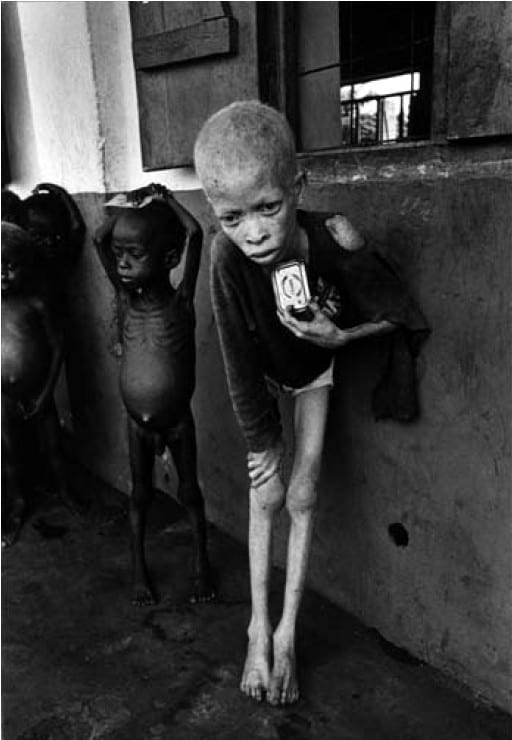
Time to get off the analyst's couch?
The history of outrospection is yet to be written. But when it is, you can bet the name of Peter Singer will be there. Singer is one of the world’s most influential moral philosophers, best known for his 1975 book Animal Liberation, which has become a foundational text of the animal liberation movement. But in the 1990s he also wrote another prescient book, How Are We To Live: Ethics in an Age of Self-Interest, which contains the kernels of an outrospective approach to thinking about the world. Continue reading
What a philosopher, certified insane, thinks about his doctors
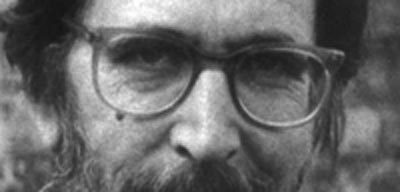 I live around the corner from one of the world’s most remarkable streets, Cowley Road in Oxford. It’s a hive of different cultures – Bangladeshi, Moroccan, Chinese, Ukranian – and has a vibrancy that cannot be found in the cobbled medieval lanes of the city centre. It has even been the subject of a fabulous book, Isolarion: A Different Oxford Journey, by James Attlee, in which the author wanders up Cowley Road philosophising about the sex shops and curry houses. But if there is one thing that makes Colwey Road truly remarkable, it is Alan Human. Continue reading
I live around the corner from one of the world’s most remarkable streets, Cowley Road in Oxford. It’s a hive of different cultures – Bangladeshi, Moroccan, Chinese, Ukranian – and has a vibrancy that cannot be found in the cobbled medieval lanes of the city centre. It has even been the subject of a fabulous book, Isolarion: A Different Oxford Journey, by James Attlee, in which the author wanders up Cowley Road philosophising about the sex shops and curry houses. But if there is one thing that makes Colwey Road truly remarkable, it is Alan Human. Continue reading
